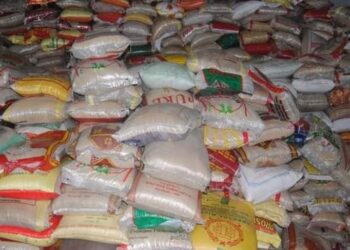For Nigeria’s democracy to develop and the welfare of Nigerians improved, a call has been made for an improved relationship between the Nigerian government and the Civil Society Organisations (CSOs).
In a statement released to newsmen Monday in Abuja, Director General of the Progressives Governors Forum (PGF) and a chieftain of the governing party, Salihu Moh. Lukman, said part of the disadvantage of refusal to consider negotiating stronger relationship between Nigerian civil society organisations and Nigerian government is that work of these organisations are dictated by priorities set by foreign donor organisations.
Lukman wondered why Nigerian civil society would resent financial support from Nigerian government but accept from UK, US and EU governments? “Isn’t it possible to negotiate conditions that makes funding from Nigerian government acceptable?
“Whether funded activities of Nigerian civil society organisations accommodate the priority needs of Nigerians is entirely a different matter. The fact is, having stronger relationship with Nigerian government could require periodic agenda setting negotiations to determine both priority areas of work for Nigerian civil society as well as the volume of funding to be mobilised. Negotiating these issues may considerably contribute to influencing government’s policy choices.
“In addition to policy choices, stronger engagement between Nigerian government and civil society could also impact positively on the operational conduct of government, which may make government more disposed to engagement with Nigerians.
“The reality is that inability to consider negotiating relationship between Nigerian civil society and Nigerian government is the manifestation of our fallibility. To begin to positively shift to ‘outweigh the loss of an illusory perfection’, will be to debate these issues. Negative mindset of completely projecting resentment to relating with Nigerian government condemn the country to below standards frameworks, with no hope of any improvement in site.
“The consequence is that although, there are some civil society organisations in the country that can access relatively large grants from foreign donors, the outlook of these organisations in terms of both organisational behaviour and service delivery to citizens are hardly any different from all the negative attributes associated with Nigerian government.
“There is the need to push Nigerian civil society organisations to change the orientation of operating with a mindset of being in opposition to Nigerian government. Initiating negotiation to develop a functional relationship with Nigerian government so that the imperfect framework, which undermine capacity to mobilise local resources can be improved.
“Imagine a situation, whereby a national framework is instituted, which for instance make it possible for the pooling of a ratio of corporate social responsibility funds in the country to support the work of Nigerian civil society organisation. Such a framework should necessarily have both management framework and defined criteria for access. Also, think of the possibility that the management framework would have representative structures and some levels of democratic control, which could strengthen ownership by civil society.”
The APC chieftain said development of a framework that can guarantee the independence of Nigerian civil society from interference by government while at the same time mobilising local funding is possible.
“Such funding could be further supported by government through appropriate annual provisions based on existing budgetary processes, which could be negotiated by the management framework.
“A wide scope of possibility exists to negotiate improved relationship between Nigerian government and civil society. The question is whether, as a nation, we want to open the debate beyond the narrow mindset that project Nigerian government as a bad partner to civil society, but foreign governments good partners.
“If democracy is about engagement, negotiation and agreement, why is it not important to consider expanding the scope of Nigerian democracy to prioritise negotiating better and stronger relationship between Nigerian government and civil society?”
The PGF boss believe that collaboration between government and civil society, if structured and organised and the independence of civil society groups are guaranteed, could facilitate strengthened engagement between Nigerian government and citizens and will be an important requirement for the development of Nigerian democracy.
“As a party founded on the vision of change, there is no reason why APC should not prioritise development of initiatives towards improved relations with Nigerian civil society.
“Developing improved relations with Nigerian civil society should be part of the strategic goal of developing Nigeria’s democracy and ensuring that Nigerian politics is being refined and new democratic frontiers, which should promote engagement between Nigerian government and citizens are created. Inability to refine Nigerian politics and create new democratic frontiers would continue to legitimise the mindset of opposition to Nigerian government by civil society.
“Political leaders in the country should be encouraged to develop a more positive disposition towards civil society in the country. To achieve that, the National Orientation Agency (NOA) should be able to provide leadership in initiating and implementing activities to facilitate negotiations for improved relationship between Nigerian government and civil society.
“Improved relationship between Nigerian government and civil society groups can be designed to reorient civil society to return to being membership based with high measure of democratic control by the members. Being democratically controlled by members should mean that activities of Nigerian civil society organisations accommodate the priority needs of Nigerians. This should translate to high impact on levels of welfare of citizens from activities of Nigerian civil society. Capacity for policy engagement will be high.”




